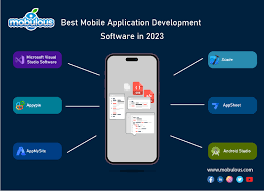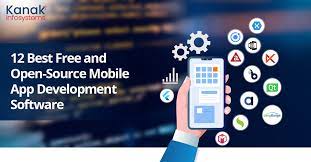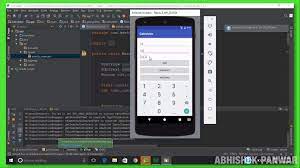Discover the Best App Making Software for Your Next Project
The Best App Making Software to Bring Your Ideas to Life
In today’s digital age, creating a mobile app has become more accessible than ever. Whether you’re a seasoned developer or a beginner looking to turn your innovative idea into reality, choosing the right app making software is crucial for success.
Key Features to Look for in App Making Software:
- User-Friendly Interface: The software should have an intuitive interface that allows users of all skill levels to navigate and build apps easily.
- Customization Options: Look for software that offers a wide range of customization options for design elements, functionalities, and user experience.
- Multi-Platform Support: Opt for software that allows you to create apps for both iOS and Android platforms without extensive rework.
- Integration Capabilities: Choose software that supports seamless integration with third-party services and APIs to enhance your app’s functionality.
- Testing and Debugging Tools: Ensure the software provides robust testing and debugging tools to identify and fix issues during the development process.
- Scalability: Select software that can accommodate the growth of your app and handle increased user traffic without compromising performance.
The Top App Making Software in 2022:
Flutter: A popular open-source framework by Google that allows developers to build natively compiled applications for mobile, web, and desktop from a single codebase.
Xcode: Apple’s integrated development environment (IDE) for creating apps exclusively for iOS and macOS platforms, offering powerful tools and resources for developers.
Android Studio: Google’s official IDE for Android app development, providing a comprehensive suite of tools to design, build, and test Android applications.
Mendix:A low-code platform that enables users to visually develop cross-platform mobile applications with minimal coding required, ideal for rapid prototyping and deployment.
No matter which app making software you choose, remember that innovation and creativity are key ingredients in crafting successful mobile applications that resonate with users worldwide. Embrace the power of technology and bring your app ideas to life!
Top Questions About the Best App-Making Software: Finding the Right Tools and Resources
- What is the best software to build an app?
- Which programming is best for app?
- Can I build my own app for free?
- Which app maker is the best?
What is the best software to build an app?
When it comes to selecting the best software for building an app, the answer largely depends on your specific needs and preferences. There are several top contenders in the market, each offering unique features and capabilities. Some popular choices include Flutter, Xcode, Android Studio, and Mendix. Flutter is favored for its versatility in creating natively compiled applications across multiple platforms from a single codebase. Xcode is renowned for its robust tools tailored for iOS and macOS app development. Android Studio stands out as Google’s official IDE for building Android applications with comprehensive resources. Mendix, on the other hand, offers a low-code platform ideal for rapid prototyping and deployment of cross-platform mobile apps with minimal coding required. Ultimately, the best software for building an app is one that aligns with your project goals, technical expertise, and desired outcomes.
Which programming is best for app?
When considering the best programming language for app development, it’s essential to assess various factors such as the specific requirements of the app, target platforms, developer expertise, and scalability needs. Different programming languages offer unique advantages and are suitable for different types of applications. For example, Java is commonly used for Android app development, while Swift is preferred for iOS apps. JavaScript frameworks like React Native and Flutter provide cross-platform compatibility. Ultimately, the best programming language for an app depends on the project’s objectives and constraints, with no one-size-fits-all answer. It’s crucial to evaluate each language’s strengths and weaknesses in relation to the app’s goals to make an informed decision.
Can I build my own app for free?
When it comes to building your own app for free, there are several options available that offer varying degrees of functionality and customization. Many app making software platforms provide free versions with limited features, making it possible for individuals with basic app development needs to create simple applications without incurring costs. However, for more advanced features and customization options, upgrading to a paid plan or investing in premium app development tools may be necessary. It’s essential to assess your requirements and budget carefully to determine the most suitable approach for building your app while considering the trade-offs between cost, functionality, and ease of use.
Which app maker is the best?
When it comes to determining the best app maker, it ultimately depends on your specific needs and preferences. Different app making software options offer varying features, customization capabilities, ease of use, and compatibility with different platforms. Some popular choices include Flutter, Xcode, Android Studio, and Mendix, each catering to different development requirements. It’s essential to evaluate factors such as user interface intuitiveness, customization options, multi-platform support, integration capabilities, testing tools, and scalability before selecting the app maker that best aligns with your project goals. Conducting thorough research and considering your project’s unique requirements will help you identify the best app maker for your development endeavors.





